thedavidsonian.news
Prominent constitutional scholar speaks at Davidson.

thedavidsonian.news
Prominent constitutional scholar speaks at Davidson.
For a Better Davidson.
April 30, 2025
11 Volume 124,
DMichael Allen ‘27 contemplates a different Frolics format.
The Arts and Entertainment coeditors recap the biggest weekend of the semester.
The Yowl investigates KYLE’s involvement with the super duper deep state.
3 4 6 8
AIDAN MARKS ‘27 (HE/HIM) POLITICS EDITOR
avidson College President Doug Hicks ‘90 hosted a webinar for students, faculty and staff on Monday, April 28 to address community concerns about uncertainty surrounding freedom of expression, federal funding, the status of international students and the state of higher education.
Hicks began by rearticulating Davidson’s Statement of Purpose and the College’s commitment to “assist students in developing humane instincts and disciplined and creative minds for lives of leadership and service.”
Speaking to Davidson’s dual commitments to diversity, equity and inclusion (DEI) initiatives and freedom of expression on campus, Hicks explained that the College is uniquely positioned to discuss controversial topics in a productive manner.
“Our focus on the public good, our focus on mutual respect, our focus on having multiple perspectives has served us well,” Hicks said. “We are not a perfect campus. We are not a perfect group of individuals, and yet we have helped students to have meaningful demonstrations, to have meaningful political and social engagement and to do so, for the large part, in a very mutually respectful way.”
Hicks then turned to the effects of recent federal policy changes at Davidson, discussing disruptions to student and faculty research and potential impacts of a raise to the federal endowment excise tax. The Davidsonian has covered both topics in recent issues.
As part of his efforts to address uncertainty about the future of higher education nationwide, Hicks has met directly with college and university administrators as well as state and federal legislators.
“There’s a concern about the cost of higher education. There’s a concern about indebtedness of students coming out [of college]. There’s a concern that students are graduating from their programs that may be expensive, and [...] they’re concerned about the political balance on campuses,” Hicks said.
Davidson aspires to be a counter example. “We want to be a model of what education should be,” Hicks said. Most recently, Hicks joined a group of college and university
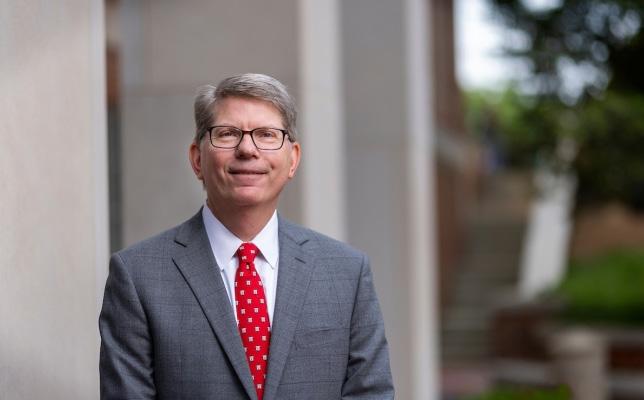
presidents in writing a public statement titled “A Call for Constructive Engagement” published April 22, which was sponsored by the American Association of Colleges and Universities and the American Academy of Arts and Sciences. The open letter has “a pretty straightforward message, which says we [as colleges and universities] participate in the public good,” Hicks said.
“We all care about educating people for lives of leadership and service. We all believe in the power of research and we believe in the power of higher education to change lives, to give people opportunity and access to a better life,” Hicks continued.
Leaders of colleges, universities and scholarly societies continue to sign the letter in an act of resistance to the Trump administration’s pressure campaign against higher education institutions. As of April 29, the statement has 562 signatures. Following his brief statement, Hicks turned to audience questions. Attendees pre-submitted about two-dozen questions, according to Q&A moderator and Interim Vice President for Student Life & Dean of Students Dr. Stacey Riemer. In one of his answers, Hicks reiterated Davidson’s support for international students, noting that the College continues to monitor their status and that campus police are trained to respond in the
CONTINUED ON PAGE 2
CLAIRE KELLY ‘25 (SHE/HER) BEN PEAKE ‘25 (HE/HIM) CO-EDITORS-IN-CHIEF
As the academic year draws to a close, the Lilly Family Gallery hosted one final deliberative forum, put on by the Deliberate Citizenship Initiative (DCI), titled “Free Expression at Davidson: Rights and Responsibilities during an Uncertain Time.” This event was the final program held in the Gallery before upcoming library renovations and comes at a time when free speech on college campuses is under fire. The forum was sparked by recent events, including Davidson’s chapter of Young Americans for Freedom disseminating proIsraeli pamphlets on campus and a number of moves made by the Trump administration, such as the arrest of a Tufts University student after their op-ed was published in The Tufts Daily. The event was designed as both a speaker series and group discussion, focused on freedom of expression on Davidson’s campus and the national stage. The organizers hoped to foster productive conversations that both sides of the political divide could contribute to.
Associate Professor of Political Science and faculty director of the DCI Dr. Graham Bullock co-hosted the event, which took
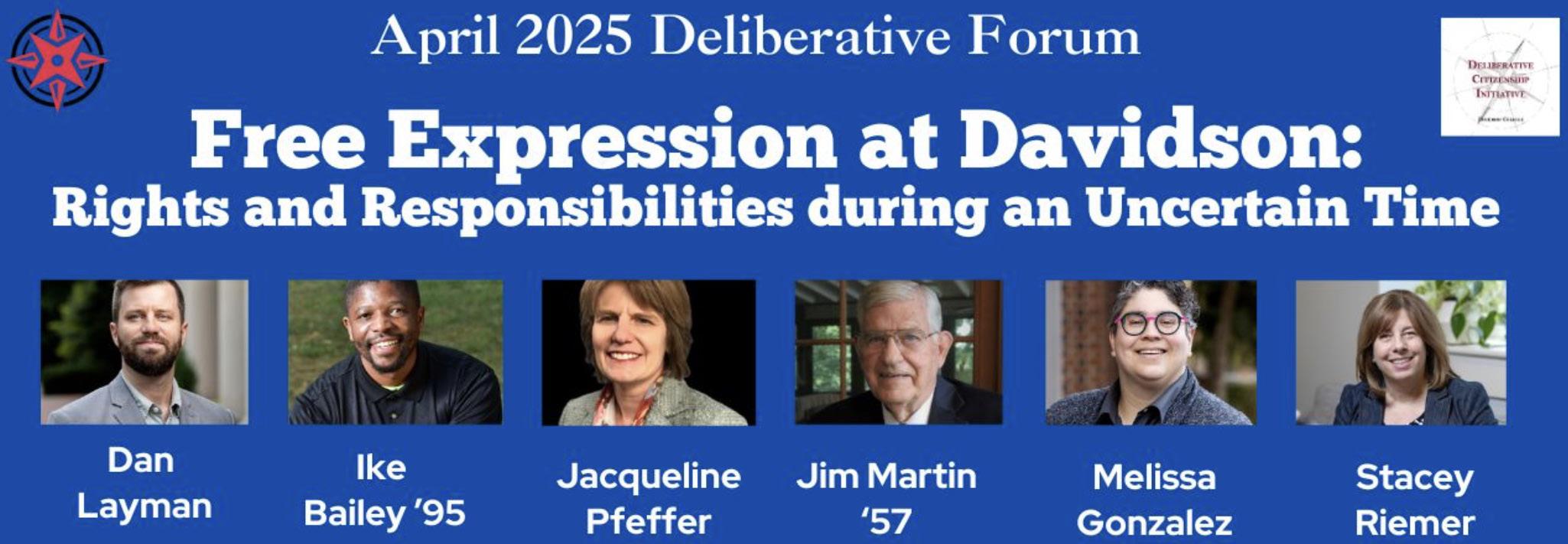
place on April 23, and gave introductions for each of the six speakers. In his initial remarks, Bullock’s stance on freedom of expression was clear: “For us at the DCI in particular, we see free expression as a necessary condition for robust democracies and healthy institutions of higher learning.” However, he claimed that more needed to be done. “It’s not just people freely making speeches in the public square, but also respectfully engaging with each other [...] we need deliberative citizens.”
After Bullock’s comments, speakers were
invited up one at a time. Each was allotted roughly six minutes to express their own thoughts on the topic, and all six speakers brought their own unique perspective.
Associate Professor of Hispanic Studies and Core Faculty in Gender & Sexuality Studies Dr. Melissa González went first, emphasizing that her motivation for accepting freedom of expression stems from the innate value of every single human being. “The reason that I value freedom of expression is because one of my core values is respecting the bodily
and intellectual autonomy of all other people,” she stated. “Feelings are not facts, but feelings absolutely impact and shape how we perceive and understand facts and information.”
It is important to contextualize González’s words within Davidson’s own Statement of Purpose, which includes a section that reads, “As a college that welcomes students, faculty, and staff from a variety of nationalities, ethnic groups, and traditions, Davidson values diversity, recognizing the dignity and worth of every person. Therefore, Davidson provides a range of opportunities for worship, civil debate, and teaching that enrich mind and spirit.” González commented that, as of now, these statements are not indicative of real life. “Unfortunately, the more you study and learn about the world, the more you see how very far we are from living [the Statement of Purpose].”
Shortly after, Associate Professor of Philosophy Dr. Daniel Layman took the stage to argue that campuses should opt for a “classical liberal position,” meaning that universities should never censor the expression of any moral, political, scientific or theological idea. “Accepting [the classical liberal position] means accepting that speech
CONTINUED FROM PAGE 1
event Immigration and Customs Enforcement (ICE) officials come to campus.
Though federal funding freezes have impacted collegiate level research, Hicks notes Davidson is unique because most of the College’s undergraduate research is funded internally. “Most of our funding is not from the federal government. Most of it is from generous donors and from tuition and other
sources beyond the government.”
In response to a question about taxpayer funding for institutions allegedly in violation of the Civil Rights Act, Hicks criticized the government’s decision to weaponize allegations of misconduct and emphasized the value of higher education.
“The U.S. taxpayer helps support universities and colleges because universities and colleges provide a public good,” Hicks stated.
“Education itself has positive external effects
on everyone around in society, and specifically has positive effects on those who graduate and receive that education.”
Perhaps most importantly, amid increasing polarization and criticism of higher education institutions, Hicks’s outreach efforts—in Raleigh, Washington and via Zoom—aim to correct the record about the work Davidson does.
“I’m concerned about counter narratives that somehow attack us, or that caricature what
happens on college and university campuses. And that’s not what’s happening here. So we need to tell our story,” Hicks said.
Hicks will host another webinar open to all Davidson College students, employees, alumni, parents and friends on Thursday, May 8 at 8 p.m. EST.
CONTINUED FROM PAGE 1
can and will do harm and that bad ideas will sometimes win. But to the extent that we embrace this position, we have a real shot at governing ourselves, and a college learning to govern ourselves as a free community of equals. And that’s a great good, I think, that’s well worth it.”
Former Governor of North Carolina Dr. Jim Martin ‘57 advocated for intellectual and institutional neutrality. Starting his time by proudly proclaiming that his pronouns are “y’all and y’all,” Martin spoke on the work that he feels still needs to be done on Davidson’s campus with regards to freedom of expression. “Davidson needs an active, affirmative commitment to recruit learned faculty with academic diversity. Fields of study with competing interpretations of themes thrive on diversity of relevant professional and ideological views. And until this is done, conservative students will never feel included in a partisan sanctuary.”
Professor of the Practice in Communication Studies Issac Bailey ‘95 led what resembled a TED Talk. Walking around the stage, locking eyes with spectators and emphasizing the power that each individual voice has, Bailey urged the audience to be brave in the face of opposition. “If you don’t use your voice, guess what? The world misses something extremely important that only you can provide. [...] And yet, for a lot of people, we shrink and cower. Every single time that something gets a little tough or challenging, we forget that we are literally one in eight billion. Every time things get a little offensive, somebody disagrees passionately with you and scares you, we forget the one in eight billion.”
Director of the Campus Free Expression Project Dr. Jacqueline Pfeffer Merrill and interim Vice President for Student Life & Dean of Students Dr. Stacey Riemer both took a more practical, general approach to their allotted time. Pfeffer Merrill described the four distinct zones where speech and expression take place on college campuses (classrooms, clubs, dorms and other communal spaces), while Riemer detailed Davidson’s Code of Responsibility as it applies to freedom of expression.
During the second half of the forum, the room split up into smaller discussion groups, each staffed with either a speaker or DCI fellow. The discussion facilitated smaller conversations that focused on specific questions involving free speech on college campuses. After an hour, Bullock returned to the stage to thank the audience for coming and encourage further deliberation before the end of the semester. González believed the event was a success. “I think it went very well overall, especially given the rushed preparation. We knew it was going to be a tough time to recruit lots of students, and I wish more current students had attended, but the overall attendance was very high and there will be other opportunities for students to engage,” she stated. “We sometimes have wildly different perspectives and beliefs, but focusing on active listening and understanding each other is the best way to build a community focused on working toward a shared purpose—which is what living our College’s Statement of Purpose requires.”
Though there were few current students in attendance, Martin agreed that the event was worthwhile. “I’ve attended several of these sessions, and I think they’re all successful for
TWEBSITE DESIGNER
he United States Fulbright Program, a prestigious cultural exchange program, is weathering a period of uncertainty amid increasing threats of extensive budget cuts to the U.S. State Department. Overseen by the Bureau of Educational and Cultural Affairs, the scholarship’s applicants must now contend with withheld funding, furloughed employees and constrained communication with applicants.
The Fulbright Program represents an umbrella of grants provided to U.S. students and young professionals to go abroad and teach English or conduct research, as well as for foreign grantees to come to the U.S. Beginning on Feb. 12, 2025, the government enacted a funding freeze for Fulbright, halting all payments toward grantees for what was said to be a period of 15 days. The freeze has not officially ended, but since mid-March, previously guaranteed funding had been gradually released back to grantees.
Davidson College has been a top Fulbright producer for ten consecutive years. As a result, the Fulbright U.S. Student Program (FUSP) is intertwined with many Davidson students’ post-graduation plans; 22 students are Semi-Finalists this year. Once a stable, albeit competitive, opportunity for engaging in cultural diplomacy, the program is now mired in communication issues and confusion.
“There was a governmental department that had reached out and said that funding would be safe for Fulbright, however [...] I don’t think I know of anyone that’s received any notification regarding final decisions. The communication regarding funding has been a bit mixed,” Fulbright Semi-Finalist for an English Teaching Assistant (ETA) position Harrison Grooms ‘25 said. The lack of clarity surrounding final
the relatively small percentage of the community that attend. [We need to] go out and tell people about it, and maybe next time we’ll get more.”
When asked how Davidson can get more students involved in future DCI events, Martin didn’t have much to say. “I haven’t thought about that before, but one idea might be to consult with a political advisor about how they do it. You have to have promotion.”
Kenny Xu ‘19, executive director of Davidsonians for Freedom of Thought and Discourse, attended the event and appreciated how open-minded most participants were. “I thought that largely everybody was on the same page about the importance of freedom of expression,” he expressed. “Governor Martin was dynamite. He was the one who highlighted the policy issues that need to be resolved for freedom of expression to come about.”
Nonetheless, Xu was clear in his desire for some level of change to the forum structure. “The one thing I wanted more of was the opportunity to ask these speakers direct questions. That’s a huge part of the discourse process because it removes the barrier between the professor and student, and that just hasn’t happened at DCI events. So I’m going to continue to encourage that.”
González hopes that people will leave the event with a stronger grasp on what freedom of expression can mean for those attending Davidson. “I hope attendees came away with a better understanding of the complexities in play, the policies in play and some big lingering questions they will return to.”
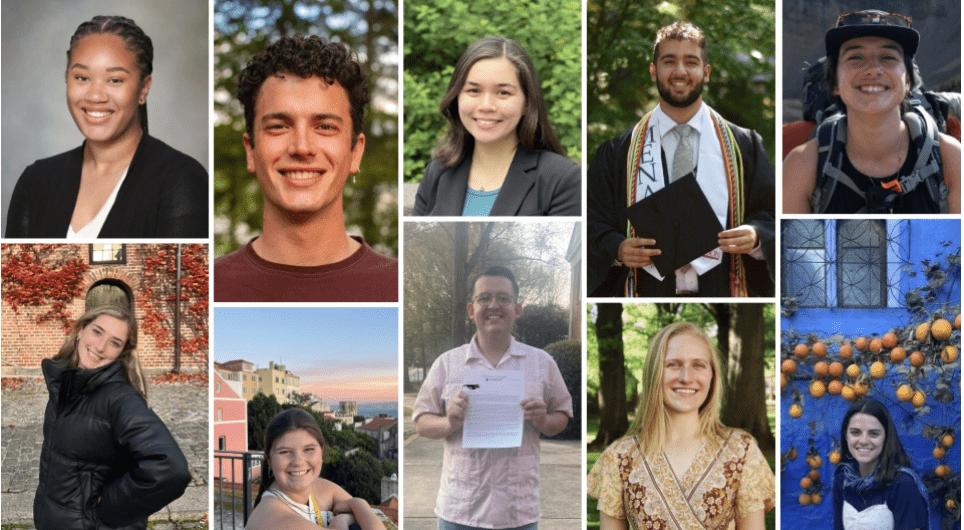
decisions and funding has given way to exasperation among many current SemiFinalists. “The last date we got was April 15, we were going to know by [then]. Most people still don’t know,” Fulbright SemiFinalist for an ETA position Grace Isernia ‘25 said. “They furloughed a bunch of [employees], which just means they don’t have a ton of people to release decisions, which I get, but it’s so frustrating.”
Uncertainty about the future of Fulbright prompted Kaitlyn Busch ‘25, a SemiFinalist for the ETA program in Uruguay, to adjust her plans.
“I just haven’t heard anything and so I had, in my mind, taken it out of the question when I thought that it was no longer an option,” Busch said. “I was concurrently applying to grad school, and so mentally, I made the shift to [that] [...] It was almost clarifying, in a sense, to be like, ‘Okay, this is not a super reliable option, I’m not going to put too many eggs in that basket.’”
This uncertainty is extending to those who are looking to apply for a Fulbright during the upcoming application cycle. Last week, the Office of Fellowships had
an informational meeting for prospective applicants.
“When I’m looking toward [graduation] I’d love to have this opportunity, but I don’t know if it will still be a thing,” intended applicant Virginia Barber ‘26 said. “To what extent am I going to put in all this work on a really intensive application [just to not] even know if this program will be funded by the end of it?”
Though the unpredictability of the 20262027 Fulbright application cycle is a cause for concern, it is not a new phenomenon. Gaylena Merritt, director of fellowships and Fulbright Program advisor (FPA), explained that Fulbright grants are subject to the political and social environments in which they are afforded. “I’ve been thinking back to fall 2020—the midst of the pandemic when uncertainty was rampant [...] Those candidates didn’t know if grants would eventually be offered,” Merritt wrote over email.
Despite the fact that the Fulbright program has historically overcome various challenges, the Trump administration’s pattern of cutting the budgets of well-
established entities leaves the possibility of termination comprehensible.
“We saw that with USAID, where something that was an established part of the American government could disappear in a matter of months at the whims of a few people in power,” Semi-Finalist for an ETA position Clyde Dwyer ‘25 said. “I think that sort of puts everything on the table, like Fulbright and Peace Corps and all these other [programs].”
This fear of the potential end of Fulbright is not unfounded. An internal document from the Trump administration, which proposed cutting the State Department budget in half, would concurrently scrap the Fulbright Program altogether.
Merritt maintained that future applicants should not be discouraged from applying, just aware of potential complications. “I encourage prospective candidates for any fellowship to carefully consider the risks of travel, study and living abroad. They should also identify resources and support structures that could help ensure their health and safety in the event of challenges, including if there would be a delay in stipend payments for example.”
Future Davidson applicants can also be certain they’ll have continued support from the Office of Fellowships. “As long as I am Davidson’s FPA, I will do my best to support Davidson’s FUSP candidates,” Merritt emphasized.
In the current political landscape, Fulbright’s mission of cultural diplomacy is more valuable than ever. “In times like this, positions like Fulbright are further [...] solidified in terms of their importance for maintaining connections [...] and making it clear to many other countries throughout the world that there are still many people in the United States that really value incorporating and understanding and learning from people from diverse cultures and backgrounds,” Grooms said.
ETHAN TRAN ‘28 (HE/HIM) STAFF WRITER
Renowned constitutional scholar Akhil Reed Amar began his lecture at Davidson College with a warning: “If you don’t know what the Constitution is and why we have it, we die as a people and as a world.”
Sterling Professor of Law and Political Science at Yale Law School and the 18th most cited legal scholar of all time, Amar spoke to students about the importance of learning about the complex history of the US during the Center for Political Engagement’s (CPE) annual speakership event on Thursday, April 25 in the Hance Auditorium.
Amar has authored over a hundred law reviews and books, with his work cited more than 50 times by the United States Supreme Court. In addition to his scholarship, he hosts a weekly podcast called “America’s Constitution,” which has hosted notable guests like Pulitzer prize-winning historian Gordan S. Wood and retired Justice Stephen Breyer.
Every spring, CPE invites a prominent political speaker to address a topic that students are most interested in. After members of the club indicated during winter break that they most wanted a scholar with expertise on the Supreme Court, Amar emerged as the leading choice. CPE Speakership Chair Garratt Rothberg ‘27 described how they invited Amar to speak on campus.
“It was really amazing,” Rothberg said. “We just shot [sic] him an email offering him a pretty big stipend to come down here and give a talk. He responded pretty quickly and agreed, but he refused it. He said, ‘I actually don’t need the money. I just want to get the word out. So, instead of paying me that money, I rather you just buy my books with it and give it out to everyone.’”
Every student received a free copy of his latest book The Words that Made Us, and will be among the first to receive his upcoming book Born Equal in September.
Amar urged students to ground their understanding of American history in facts, not ideology, and to recognize both its achievements and failures.
“First, we all have to start with the same facts that show both sides. One side says America has never done anything bad— that’s not true. And the Howard Zinns of the world claim America has never done anything good—that’s even more false,” Amar said.
Howard Zinn is a prominent historian best known for his book A People’s History of the United States, which has been adopted into the curriculum of many universities and school districts. Zinn’s works argue that, from the viewpoint of the
Q: Any tips for moving out at the end of the year?
I’m so glad you asked this! College move-out can feel like controlled chaos, but with a bit of planning, you’ll be out the door stress-free.
First, start early. Don’t wait until the night before. Begin by packing things you don’t use daily, like extra clothes, decorations or textbooks. Donate, sell or toss what you don’t need—less to haul means less to worry about.
You can even donate through the school! I work at Lula Bell’s and every year International Student Engagement (ISE) and Lula Bell’s Resource Center, in partnership with the Sustainability Office and others, collect gently used dorm essentials to support incoming and international students. Donations go towards the Free Store in the fall semester and also help students arriving from abroad!
If you’re moving out, consider donating clean, working items such as:
Mini-fridges, microwaves and small kitchen appliances, kitchenware, storage containers, lamps, and hangers, dorm decor and small furniture, business or winter clothing, school supplies (paper, pens, backpacks, etc.) and unopened, unused bedding.
Donation Drop-Off Dates & Locations:
May 13–15 (Belk Hall Parking Lot): 1–5 p.m. (Tues./ Wed.), 9 a.m.–1 p.m. (Thurs.)
May 18–19 (Ridge Road near Flowe Apartments): 1–5 p.m. (Sun.), 9 a.m.–1 p.m. (Mon.)
Something else important to remember is that each year the move out pods face challenges caused by well-meaning but inappropriate donations. Common issues include
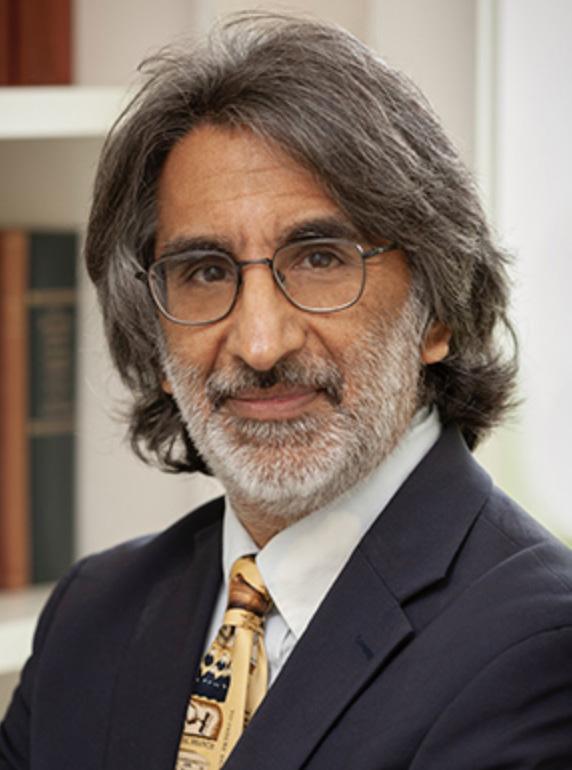
marginalized, America has always been an oppressive and exploitative country. Amar acknowledged Zinn’s work as factual in basis, but erroneously selective in only focusing on the bad parts of American history.
“Of course, you are told the story of slavery and exclusion of women to vote—that’s all true,” Amar said. “But you have to acknowledge that the story of the Constitution did not start in 1787. Long before Britain abolished slavery in 1834, the Northern states already did [...] The Constitution is intergenerational and, in general, has gotten better over time.” Amar continued. “If it were true [that America has never done anything good], my parents were idiots to come here from India and so are the millions of people who want to come here. I have dozens of cousins who want to come here and they can’t. Every day, I kiss the ground because I am so lucky to be here and be a birthright citizen.”
President of the Davidson College Libertarians Gabriel RussNachamie ‘27 was particularly struck by Amar’s interpretation of American history.
“I think the biggest takeaway was the defense of American history. It was refreshing to hear a professor put the United States’ history in the [context of] world history [...] [He] showed that it was overall a good thing that America was founded and adopted their Constitution.”
Amar extended his historical method to his own constitutional doctrine of originalism which advocates for an interpretation of the Constitution based on the original meaning of its words and how people at that time construed it. Amar’s doctrine emphasizes restraining one’s normative prejudices of good. For example, he identifies himself as a left-leaning Democrat, but still recognizes a constitutional right to guns, especially in the context of how it helped African Americans in the Jim Crow South.
“I don’t have a gun in my home,” Amar said. “But I think it becomes blindingly clear that you have a right to a gun when you read about what happened after the Civil War. More than anyone else, Blacks needed guns in their homes to protect themselves against lynchers. It’s not so much about militias in Lexington and Concord, but it’s about Blacks in the South.”
Attendee Sullivan Smith ‘28 appreciated the intersectionality of Amar’s approach.“It made me realize how important it is to incorporate both law and history together to understand key events,” Smith said.
Amar continued to stress the importance of looking at the facts when analyzing constitutional cases, even when they interfere with personal beliefs.
“So, I am pro-choice. I believe in reproductive rights and trust women over the government,” Amar stated. “But I am also a harsh critic of “Roe v. Wade” because I thought it was madeup. The author [of Roe] Harry Blackmun is a good, decent liberal, but he made no persuasive constitutional argument.” President of the Davidson College Democrats Kailliou Macon-Goudeau ‘25 appreciated Amar’s unique perspective as a liberal originalist.
“I think it was very good to hear from a constitutional scholar [about] his different opinions and perspectives,” MaconGoudeau said. “I am very excited to read his book and hope Davidson continues to invite a diverse array of legal scholars to not only speak on legal processes, but also offer their perspective on current-day issues to give us a holistic vision of America and where we are as a country.”
Amar ended his lecture by calling on the audience to read more and have a more expansive view of their history
“There are many good things and bad things that happened in American history. But you cannot just focus on one side. You have to know and understand both, so that you understand what works and what doesn’t work, and then we can truly start to make a better change,” Amar concluded.
students bringing oversized furniture that can’t be stored or transported, clothing in poor condition that should be recycled rather than reused and open food items that must be discarded for safety reasons. These donations not only cannot be used but they also take staff weeks to sort through, creating a significant burden on the team.
Another recurring problem is items being left outside the donation pods when they are not staffed. Even if the items are acceptable, they must be thrown away out of caution when left unattended. To reduce these issues, the number of collection days has been increased, and students are strongly encouraged to make a clear move-out plan that includes following the approved donation list and using the designated times and locations.
After you’ve donated anything you don’t need, get organized. Use bins or sturdy boxes and label everything clearly by category (e.g., “Kitchen,” “Desk Supplies”). Keep similar items together so unpacking later is easier. If you’re storing items near campus, book your storage unit early— those fill up quickly by the time May rolls around!
Also, coordinate with your roommates. Schedule different move-out times if possible to avoid hallway traffic jams and make elevator use smoother. That way you both can help each other!
Don’t forget the small stuff—return textbooks, clean your room (so you don’t get charged a cleaning fee) and double check Davidson’s move-out policies so you’re prepared. Finally, ask for help if you need it! A friend, a parent or even a dolly cart can make a huge difference.
You’ve got this. Finish strong—and enjoy your well-earned summer!
Wishing you a successful move-out, Annabel Groseclose ‘27
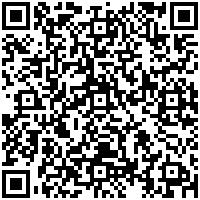
My footsteps on the brick are brisk and quiet as I march onward past the daffodils, past the hammocks, to one of my many spots. On my way, I pass others, chatting and giggling with friends, relieved after their hard day of work. I pass people headed to their beds, to call their mothers and watch TikTok until their eyes can’t stay open anymore. Occasionally, I pass a friend or a friend of a friend. How’s your evening? Headed to bed? Done with your work? Most of the time, I dread what lies ahead, which is part of the reason I’ve spent the hours since dinner doing any miscellaneous task or talking to anyone I can find. As a child, I stayed up late reading. Sitting in my top bunk, above my snoring sister, I would quietly reach over the bars, grab my book from the basket and turn on my cloud-shaped lamp. I would read to the point of exhaustion. I used to get caught reading when I was supposed to be asleep. One time, my babysitter confiscated my lamp, grabbing a screwdriver and furiously taking it out of the wall, forcing me to lay down and close my eyes. My parents got worried so they brought me to a “sleep doctor,” who attached sensors to my temples and told me to look at a computer. When I had a thought, a little hot air balloon on the screen would sink, and when my mind went blank it would rise. I never got my hot air balloon to rise very high. Ellison Baker ‘27, my current college
roommate, asks me, Where are you going to go this time? after I tell her I’m not going to bed just yet. I have a few favorite spots that I rotate between. I go to Union when I want a snack or when I want to act like it’s the ‘90s and I’m in a coming-of-age movie. The warm lights are comforting, for a while at least, and the blue furniture and brick remind me of photos I have seen of Davidson from when my parents were students here. After a few hours, the lights make the walls too yellow and I start to feel dirty. Then there’s the Hurt Hub. I only go during finals season now. It’s a pretty great place to work, but sometimes the lights can be blinding. The smells of plastic, cleaner and a hint of Celsius are almost nauseating unless I am in the right mindset. I go to Wall when I need to “lock in.” The lights are slightly too cool and the green and orange furniture is slightly off-putting. But if you can find a study room in Wall, you’re set for the night. The dark green walls engulf me, sending me into a haze of chemicals and experiments. I go to the Chidsey Lobby (“Chobby”) when I’m too tired to walk anywhere else. I sit on an armchair, trying to hide myself from the gusts of cold wind that fill the space whenever another person comes to go to bed. Sometimes, Chobby is filled with people and the smell of food cooking on the stove or in the oven. Sometimes, it’s a ghost town. Lastly, I go to Libs when I want to be surrounded by books. Here is where I truly feel like a student. There are two options in Libs for me: First Libs is the place I go when I want to get work done but need some company
Last year, I hopped on the phone to catch up with one of my good friends from high school. During our conversation, I learned that he was not only the lead singer in a student band at Bowdoin College, but that his band had won Bowdoin’s equivalent of our Battle of the Bands. I asked him about the prize, expecting to hear about a small cash payout or a silly trophy, but I was instead shown pictures of his band opening for Bowdoin’s version of Frolics, featuring Sean Kingston and NLE Choppa. Beyond how much I enjoyed seeing him grace the same stage that “SLUT ME OUT” would be performed on later that evening, it begged the question: Why do we at Davidson not offer that same opportunity? I approach this issue as someone who loves Frolics and had no qualms with this year’s concert; the event is an incredible opportunity to attend a good show for free in the era of evil Live Nation’s monopoly over ticket prices. I interviewed Bea Middendorf ‘25, the chair of the Concert Committee, about her experience heading the selection process for Frolics and appreciated hearing about how much care she and the rest of the Committee gave to the decision over which artists to book. Mosh pits during Rico Nasty proved to be polarizing in the opposite way that laying on picnic blankets for Briston Maroney
while doing it. Second Libs is the place I go when I want to focus on my work, with the occasional trip downstairs to the vending machine.
Even if I begin my night by working with a partner, I eventually out-stay them, and they retreat to their slumber. I am left to my lonesome, to my own mind. While the whole world sleeps, I struggle on, writing papers and studying for tests. Recently, I stayed in Union until 3 a.m., walked back to my dorm and realized that my key to get into the building was actually sitting on my bed. I stood for a minute at the glass door, waiting for someone to walk by so I could knock, begging them to let me in. After a while, the automatic lights turned off and I was left stranded. That’s when the phone calls began. The Davidson Police Department picked up. As I stood by the door, waiting for the police to walk around the corner, I sank in shame.
But being up late isn’t always lonely because I’m not always alone. The few of us that stay up late see each other and smile, a moment of mutual understanding. For some, we stay up late out of necessity. We procrastinate important tasks until it comes down to the last minute. We focus better at night anyway so, naturally, night hours count as productive time. For others, the night is when we feel like we get true free time. There are no obligations, no people to talk to, no questions to answer. For some, staying up late is needed if we want to participate in the entertaining daytime activities Davidson offers. Those of us
was, and the Committee reflected on that polarity to assemble a happy medium of folk rock, DJing and hip-hop this year. Although DJ Earworm’s hype man (and softcore stripper) threw me off a bit, every performer brought energy that made their sets enjoyable for everyone, regardless of genre. Given the constraints of the Union Board budget and performer availability, I believe that we had a great lineup. However, I wonder who we could bring in with even more money to work with, and there is no easier way to gain those funds than an opener who would play for free. There are certainly pros and cons to the idea of having student performers as the opener for Frolics. It would be an unmatched opportunity to spotlight a band during the biggest event of the year. We had groups at Battle of the Bands perform everything from Steely Dan to Rage Against the Machine, so genre variety would most certainly not be a concern. If Davidson’s Battle of the Bands was to operate like Bowdoin’s, upping the stakes from “winner” to “Frolics opener” would most certainly bring more attention to that event and increase interest in performing at a high level. Most importantly—and I cannot emphasize this point enough—the winner would perform for free. This would then allow the Committee to put all of their eggs in one basket for a big primary artist.
However, I can understand that seeing a name
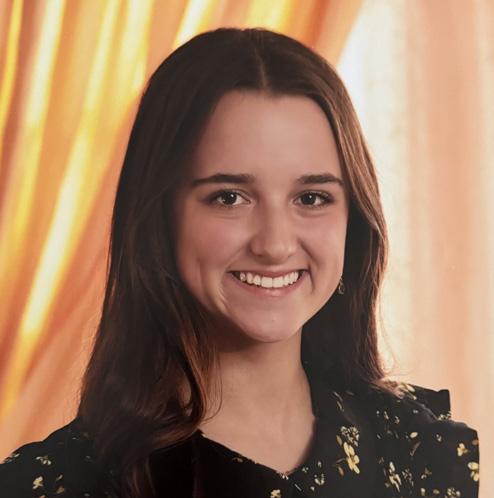
who have busy social schedules leave little time during the day to study productively. For me, it is a combination of all these reasons plus the companionship of other late-night workers. There is a sense of camaraderie when the clock strikes midnight and we all stay. My conversations about the Honor Code, politics, eating houses and future plans extend into the early hours of the morning.
For us night owls, staying up is a way to make time for ourselves, for our own thoughts and feelings. It’s a time when we can be our true selves without the eyes of the rest of the world on us. It’s time to be immersed in our own minds. When my time has come, my footsteps on the brick are brisk and quiet as I march to my pillow. The familiar hum of a generator and Orion’s Belt overhead accompany me. Each building, each dorm, each window is dark, their inhabitants dreaming until the sun rises. But without fail, there is always at least one window that glows with orange light, another person caught up in their own little reality.
Charlotte Frampton ‘27 is an English major from Denver, CO and can be reached for comment at chframpton@davidson.edu.

like FALL RISK on a Frolics poster likely does not inspire the same level of excitement as a band with hundreds of millions of plays on Spotify (though it should). I also recognize that student bands do not have the performing experience nor the professionalism that people who make a living off of these gigs do. Though, even if a student band might bring a more amateurish energy to the stage, would it not be fun to see your fellow students performing alongside a big name artist? To see Jack Hill ‘27 play the “Free Bird” solo and likely outshine the main artist? Aside from the financial benefits, having this opportunity as a performer or an attendee is enough to sell me on the idea. Hopefully, those who can bring this idea to life will feel the same one day.
Michael Allen ‘27 is a Political Science and Educational Studies double major from Austin, TX and can be reached for comment at miallen@davidson.edu.
CLAIRE KELLY ‘25 (SHE/HER) CO-EDITOR-IN-CHIEF
Last week, Davidson golf secured their fifth Atlantic 10 (A-10) title, their fourth in the last five years. From April 22 to April 24, the ‘Cats battled in Orlando, Florida, with Nate Faulkner ‘28 and Joshua Stewart ‘25 playing an integral part in the team’s success. Named Most Outstanding Rookie, Faulkner made par on the 18th hole of the tournament’s third and final day, securing a one-stroke win for Davidson. Stewart and Faulkner both finished third overall, and Stewart was named All-Conference and A-10 Player of the Year in the process.
In an interview with The Davidsonian, Faulkner and Stewart shared what it was like to play a crucial role in the team’s most recent championship win.
Q: How do you feel your attitude about golf has changed from when you first arrived at Davidson to now?
Stewart: My attitude toward golf has stayed consistent over my time at Davidson. I have wanted to play professional golf since I was a kid, so I have always made it a priority. I’ve approached golf with serious dedication, discipline and a long-term perspective. Although college presented new challenges as well as opportunities, my commitment to improvement in [order to have] a professional career has never wavered.
AFaulkner: I feel like college golf is definitely different [from] junior golf, just because you’re part of the team now and the courses are harder. Everything’s a little bit more [intense], so I think just getting comfortable with that, just sticking to your own game plan has been important.
Q: What has been your favorite part of being on the team this year?
Stewart: I have enjoyed growing my relationships with my teammates. As a senior I have been able to mentor some of the younger guys on the team and show them what it takes to compete at the collegiate level, which has been fun.
Faulkner: I think last week kind of highlights some of the key things, [but] just being on a team and winning together and practicing together [is] a part of it that you just don’t get unless you’re on a college golf team. That’s been really cool to experience, especially at Davidson too. Outside the golf team, just being able to get to know everybody around campus, just being [at] a smaller school has been special.
Q: You had some intense moments in the A-10 tournament last week. How did you keep your composure throughout?
Stewart: I keep my focus on task-relevant information the best I can. This means being present and engaging every shot with the same level of focus. I see golf as me, the ball and the golf course and do not worry about external stimuli. I don’t look at leaderboards because it’s not relevant to my performance, so I had no
idea how close the scores were coming down the stretch.
Faulkner: Golf definitely has a lot of mental [components]. We’ve worked a lot [...] this year on mental [strength] and nailing down a process that you can repeat under pressure. And so it’s just about trying to not think about the things you can’t control and just focus on the one thing that you can do, which is [to] make sure your thoughts are good [and] focus on what you’re doing, not [on] everybody else.
Q: What are some challenges you faced on the course last week? Each day is different, but what did you find to be one of the harder aspects?
Stewart: I struggled with reading the greens throughout the week. My judgments of both speed and line were off, especially the last day. It was the best I’ve hit the ball in a while and the most comfortable I’ve felt with my approach game, but did not putt up to my standards. I was a full 3.5 shots worse than my season average the last day on the greens.
Faulkner: We knew what we needed to do, which was to win in order to move on, but, at the same time, you’ve got other teams playing well. So dealing with some uncertainty and the added pressure of knowing that we have to win in order to move on. Trying to keep those thoughts away [was difficult].
Q: What has it meant to be such an integral part of the team, especially after being named A-10 Rookie of the Year and A-10 Golfer of the Year
respectively?
Stewart: It is a testament to my hard work paying off and shows me that I am on an upward trajectory. I have bigger goals in the game of golf than player of the year awards, but this was definitely a goal I had going into the season, and it was nice to check that off the list.
Faulkner: It’s definitely the highlight of my golf career so far, [especially after] being able to come through at the end [...] we all came together when we needed to. That doesn’t happen every day.
Q: What are your goals for regionals? What are you hoping to get out of the remainder of your season?
Stewart: My goal for regionals is [...] to make it to the NCAAs as an individual. I believe with the right prep over the next two weeks this will be accomplished. If I can tighten up my start lines, [...] and putt up to the standard I am used to, I fully expect to achieve this goal. Once I get there, I will look to compete to the best of my ability. Hopefully, the game I bring to the course produces the results I am looking for. Faulkner: I’m excited to see where we’ll end up. I think it’s the same thing [...] we know what we need to do to move on. So I think now it’s about practicing and executing a game plan to get better.
fter a program-best third place conference finish in 2024, Davidson lacrosse has continued their success in 2025 with a regular season record of 8-2. The ‘Cats now enter the postseason led by captains Payton Cheedle ‘25, Riley Cochrane ‘25, Tate Crawford ‘25 and Josie Lambert ‘25. The team celebrated Senior Day with a 15-8 win over George Washington University on Sunday, April 19.
Riley Moore ‘25 gave a description of the senior class and their impact: “Our class is a perfect mix of eight: we all have different skills, interests, strengths and leadership styles. I think we balance each other out well and are a very cohesive group in a lot of ways. Because of this, we really had a vision this year to bring a close, welcoming and fun team culture back to the program in any way we could. At the end of this year, I can safely say that we have been able to do so, and I think our teammates would agree.”
Crawford believes that the relationships with her team have created a strong sense of camaraderie. “We’ve created an environment where there’s no hierarchy [...] I think the freshmen are very comfortable with us. [...] It’s been a great dynamic off the field, which has transitioned so well on the field.” Cochrane echoed Crawford’s sentiments. “The class of 2025 has done such a good job with being inclusive. And I think some of us have impacts on the field, but all of us have impacted every single person off the field, which is honestly more important for team culture.”
In addition to strong senior leadership, the on-field success can be attributed to the acceptance and tenacity from younger players. “This season we’ve had a really hard-working group of girls who want to win and know that we can win the whole thing,” Crawford said. “Throughout my four years, this has been the best culture we’ve had.”
The solidifying 14-11 win over University of Richmond also stood out as a highlight of the season. “This win was so exciting because I feel like we didn’t have any harsh expectations on us, we just played our game and came out on top,” Moore said. In addition to their on-field wins, the class of 2025 has developed strong relationships off the field. Lambert reflected on the highlights of her career, noting especially “the friends [I]

made throughout [my] four years and getting to spend every day at practice with them.” The relationships that have been built between the members of the 2025 class far outweigh the wins and losses they’ve experienced over the years at Davidson and before. Many players have committed themselves to the game of lacrosse for a large part of their lives. “Honestly, my highlight is just being able to live out the dream I had since I was younger,” Cochrane said.
As this group of seniors finishes their Davidson careers, they are not only hoping to enjoy the last few weeks with their teammates but are looking to bring back the first Atlantic 10 (A-10) championship to campus. “We are super excited for the tournament, especially because it is our last one. We fully believe we have what it takes to win,” Lambert said.
This collective positive outlook is evident among the senior class. “I think it’s going to be a lot about the belief that we can win. Even in some of our hardest games, we’ve believed that we could do it [...] I still think that belief will get us further in the tournament,” Crawford stated.
The third ranked ‘Cats will take on sixth-seeded Virginia Commonwealth University on Thursday, May 1, and Davidson looks to be the last team standing in the A-10 when the whistle sounds on Sunday. Davidson’s seniors remain optimistic about their chances to take home the trophy. “Our goal is to win an A-10 championship. That’s been a focal point of all of our years here. But this year, it feels like it’s right in front of us, and I feel
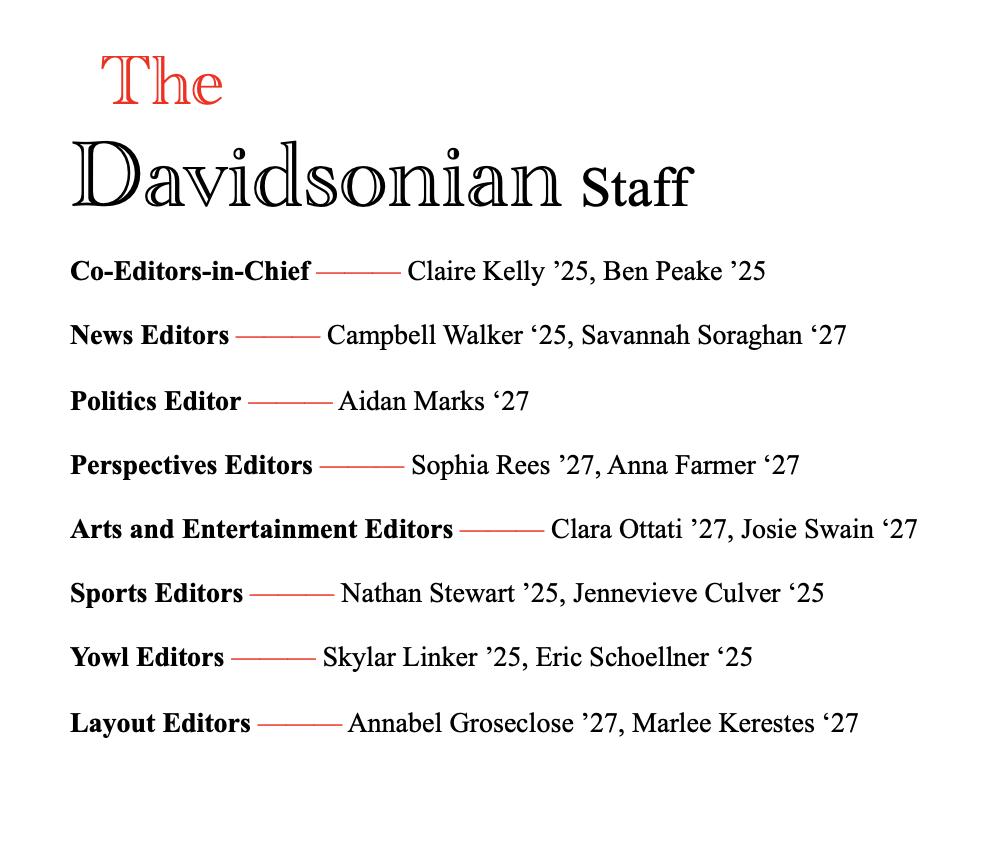
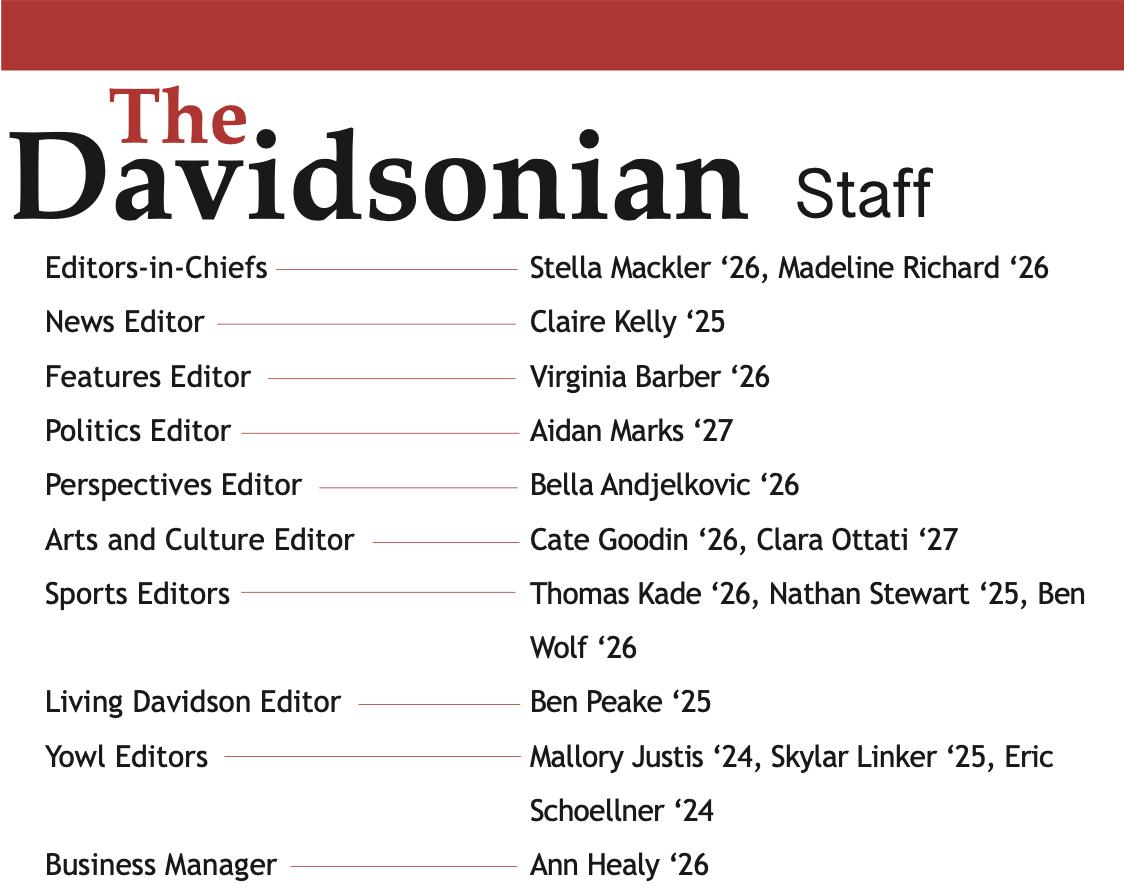
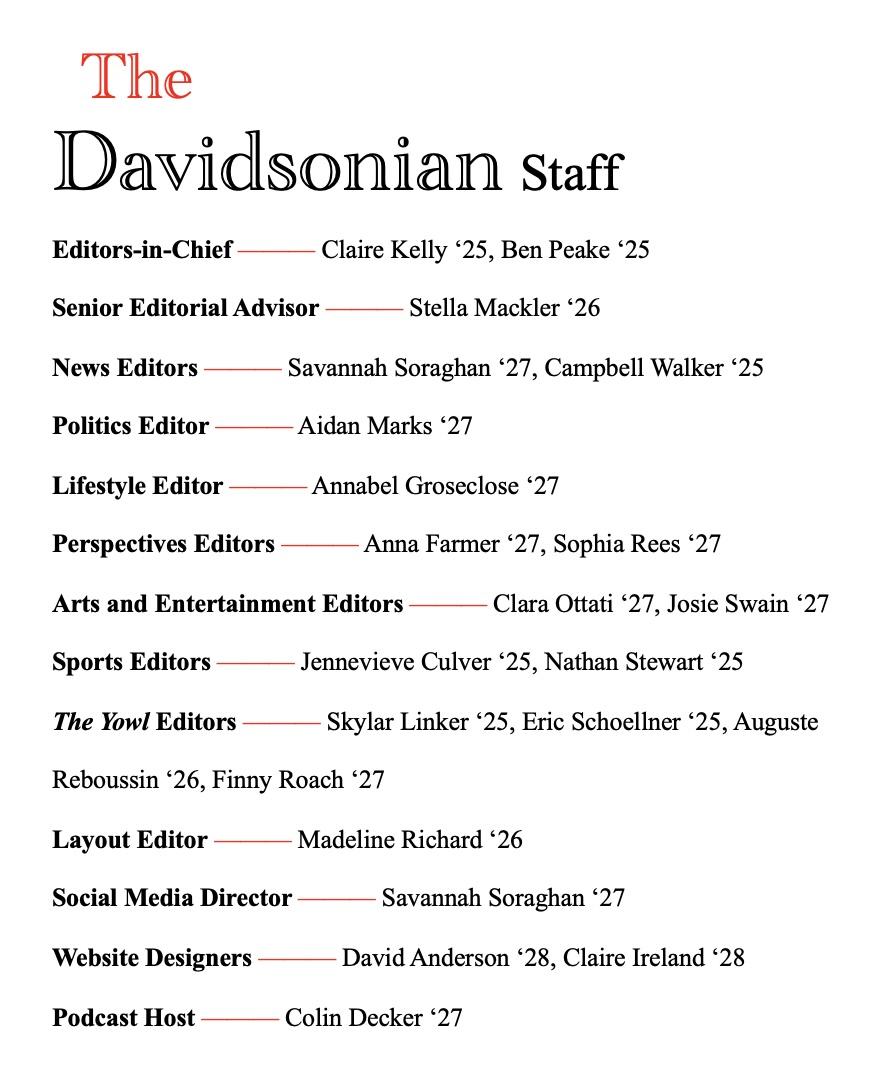
Students headed to the swamp this past weekend for “Shrolics”—Union Board and Patterson Court Council’s (PCC) Shrek-themed Frolics weekend— filled with food trucks, slip ‘n slides and musical guests. Friday, April 25 marked the beginning of what many consider to be the highlight of each academic year. Last year’s Frolics (which had a “Jaws” theme) brought Del Water Gap and Briston Maroney to campus, setting a high standard for the 2025 weekend. Students danced the night away on the Old Tennis Court Lawn to two 30-minute sets by TikTok mashup master DJ Earworm, Davidson alum-led band The 502s and Musical.ly legend KYLE.
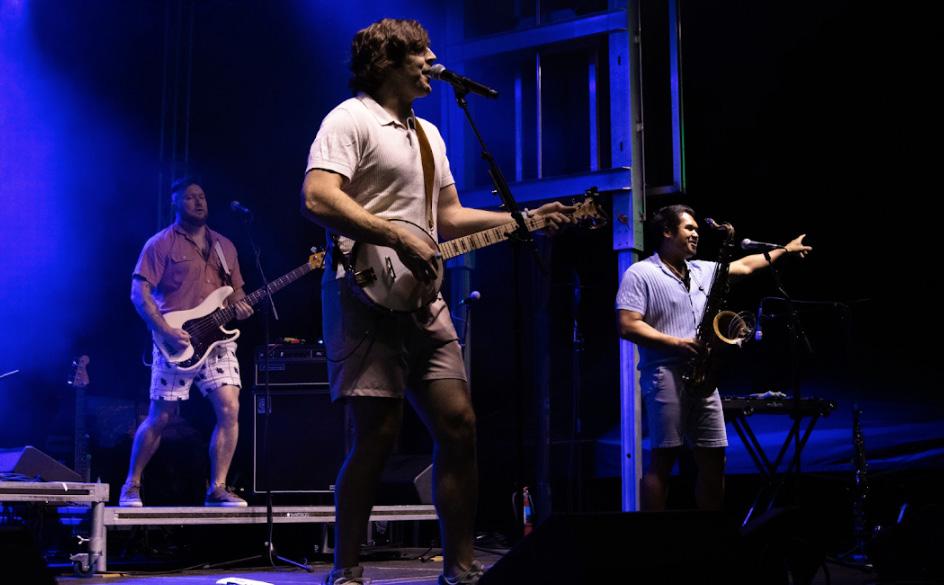
After classes (or, for very committed students, first thing in the morning) on Friday, students donned swimsuits and made their way to PCC Circle. Phi Gamma Delta (FIJI) Fraternity hosted “Acapalooza,” featuring performances by Davidson’s four a cappella groups the Delilahs, the Nuances, Androgyny and the Generals. Next door, both Rusk Eating House and the Black Student Coalition fired up burgers and hot dogs on their grills for a cookout. Meanwhile, some students made their way to the Jamie / Hart Courtyard to take a trip down a slip ‘n slide, though many were promptly kicked out by Davidson College Police. All activities led up to the main event: the concert.
Before Frolics Friday, it had been more than forty days and forty nights since the musical world had heard from self-declared “prettier Jesus” Ella Marija Lani Yelich-O’Connor, more commonly known as Lorde.
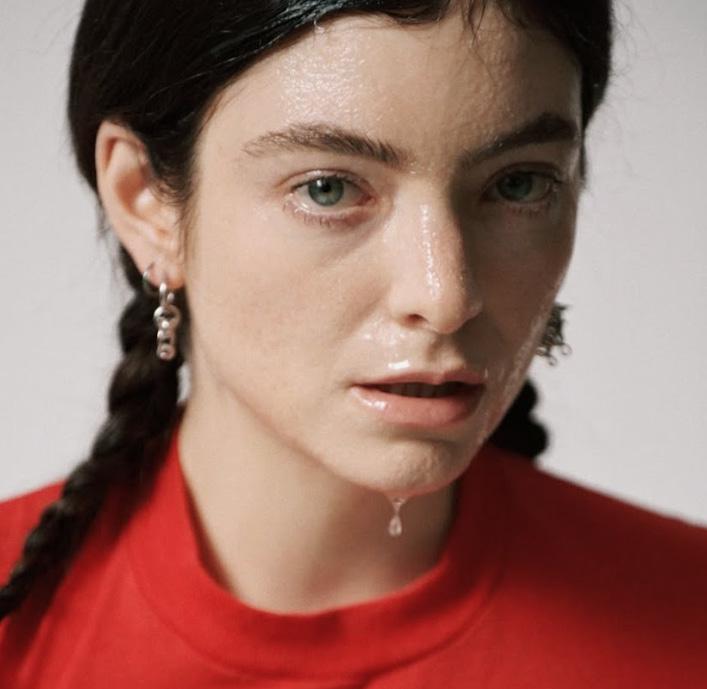
Beginning in April, snippets of her new release “What Was That” spread through numerous Instagram accounts, including @lordecontent. Instagram posts and fan art floated around social media, with some fans assuming the song would be released on April 11. But as the saying goes, the Lorde works in mysterious ways. April crept by and Lorde did not release her newest song.
First to take the stage was DJ Earworm. DJ Earworm’s first set was only thirty minutes long, but it left a lasting impression on Davidson students. “The mashups were crazy,” Kathleen Degnan ‘27 said. “Like, he really kept us guessing.” The stage presence of DJ Earworm was also notable to the audience. “The guy dancing around and hyping him up was funny,” Degnan shared when referring to DJ Earworm’s enthusiastic hype man who even took his shirt off and waved it like a flag when accompanying him on stage.
Following DJ Earworm was The 502s, an indie folk band led by alum Ed Isola ‘15. Isola even mentioned that one of the songs played in the performance was actually written in his senior apartment during his time at Davidson, emphasizing the band’s connection to the campus community. At one point the band embraced the Shrolics theme and displayed their very own Shrek headbands and played “Accidentally in Love” by the Counting Crows (which was featured in “Shrek 2”), a very fitting moment for the atmosphere.
Regan Harvey ‘27 felt that the performance was perfect for Davidson. “I thought the overall vibe and environment was very positive and I really liked the band’s music and instruments that I [think] went well with the Davidson and frolics vibe,” Harvey shared. “I also thought it was cool that he went to Davidson, it made the performance even more special.”
After a second set from DJ Earworm, KYLE took the stage for a performance full of 2010s throwbacks like “iSpy” and “Hey Julie.” He even played some unreleased songs for the Davidson audience—which they got to vote on. Toward the end of his performance, KYLE took what seemed like a victory lap throughout the audience, running through the crowd and taking selfies with students. Brant Simmons ‘28 recalled “when he hopped down it was a bit of a jumpscare, but also awesome.”
Union Board President Davis Varnado ‘25 and Vice President Bea Middendorf ‘25 led Union Board’s Concert Committee this semester and assisted in the process of choosing the three artists of the weekend. The committee was open to non-Union Board members as well, allowing for the voice of the student body to be heard in the planning process.
Natalie Morris ‘28 participated in the Concert Committee and helped choose the artists for this year’s event. “We looked at the recommendations from Google Forms, we wanted to pick two artists that had pretty different vibes,” she shared. They eventually reached their final decision which was met by excitement by the committee members and artists alike. “The 502s have Davidson alums which was a cool full circle and then KYLE was super excited to come and even did a meet
Despite doubts from listeners, Lorde in fact was back. She unofficially premiered this new song in Washington Square Park in New York City to an overwhelming crowd of fanatics on April 22. To gain traction for her secret release party, she also sent cryptic texts to fans at 4 p.m. that stated, “Meet me in the park / Tonight 7pm - xx.”
By 7 p.m., the New York City Police Department was shutting down the event and Lorde was directing everyone to leave the park on her Instagram story. But fans persisted: videos of mass movement through the streets of New York City flooded Twitter and Instagram. In the background, speakers and voices singing “Supercut,” “Perfect Places” and the like could be heard. Dev Hynes, also known as Blood Orange, arrived at the park with a speaker and played the still-unreleased song for frenetic fans. Finally, at 9 p.m., the woman of the hour(s) arrived, standing on a speaker and squirming around in classic Lorde fashion to officially premiere the song to her dedicated devotees. The artist then officially released “What Was That” on Friday, April 25. Lorde opens “What Was That” with repeating piano keys before setting the scene: “A place in the city, a chair and a bed / I cover up all the mirrors, I can’t see myself yet.” Gone is the girl riding carefree out the sunroof, on the streets of New York, dancing to “Greenlight.” It’s ten years later, and she croons, “Oh I’m missing you.” Devoted listeners quickly noted that Jack Antonoff is not credited as a producer for this song.
Could the content be informed by the formal production? Will the fan theories of a LordeAntonoff relationship during “Melodrama” re-emerge? Twenty-seven-year-old Lorde then looks back on “all the things we used to do,” as the beat drop suddenly transports listeners to the “back garden / when I was seventeen.” In the next verse, “I stare at the painted faces / They talk current affairs” reminds one of her roots in “Pure Heroine.” We’re back in “A
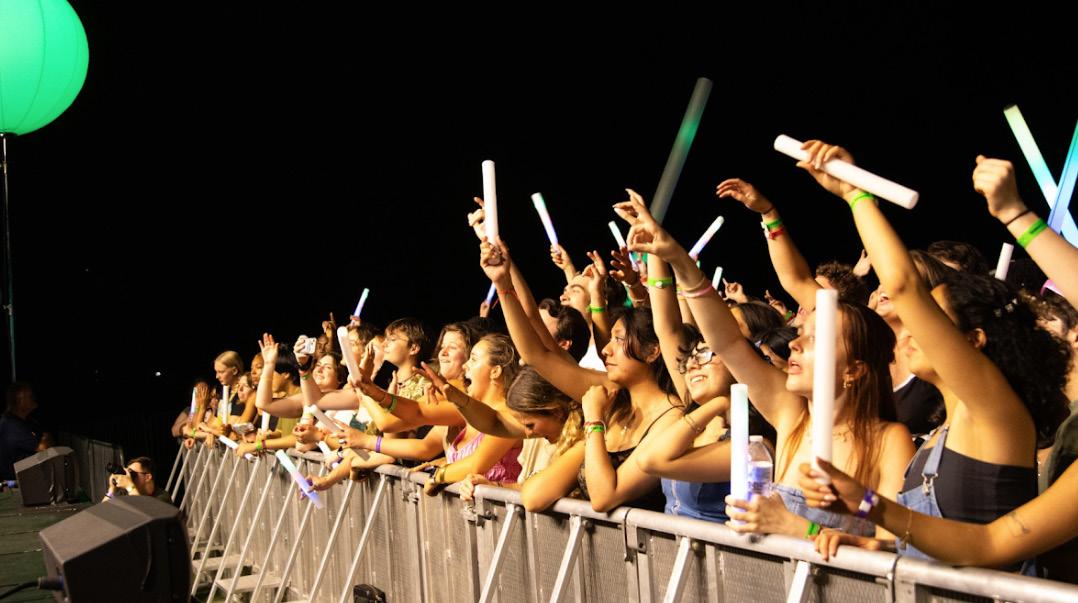
and greet/photo with the committee afterward,” Morris added. Union Board members worked tirelessly all year to make the perfect weekend event. Katherine Marshall ‘26, next year’s Union Board president and 2023-2024 major events chair and frolics planner, discussed the work that goes on behind the scenes. “The [three] major events chairs, including Natalie [Russell ‘25], Sidney [Donnan ‘27] and Kaesy [Diaz Castellanos ‘27], [...] organize the major events of the year. So Fall Fling, Winterfest and Frolics [...] the three of them spearhead everything,” Marshall shared. “They really take it on. But it’s really cool because it then becomes a kind of collaborative effort from the Board. It becomes an all hands on deck weekend. It is the first time that the new Board for next year is volunteering with Union Board, so it’s big when it comes to the teamwork aspect of UB.”
The teamwork certainly paid off. Saturday had food trucks, snow cones and inflatable games. Though the BORG ban attempted to prevent blackouts, a campus wide power-outage got in the way. Nevertheless, Union Board persevered and kept the day upbeat (and provided water to sweating students without AC). Connor Eating House hosted a party with a new student band, The Naked Tuesdays, later that night, closing out the weekend just as it began—with music.
Clara Ottati ‘27 is an English and history double major from Chicago, IL and can be reached for comment at clottati@ davidson.edu.
Josie Swain ‘27 is an English major from Atlanta, GA and can be reached for comment at joswain@davidson.edu.
World Alone,” where a nascent, teen Lorde sings, “People are talking” while only paying attention to her dance partner. But this time, that dancer is no longer with her. In “What Was That,” she asks “Do you know you’re still with me?” but it’s only in memory. Acknowledging “It might not let me go,” Lorde gives into the memory and the melancholy, and dances to it. Maybe that girl from “Melodrama” isn’t gone. Maybe she’s just a muse now, reflected back with a more mature view.
However, the new release wasn’t the only thing that got fans excited: a music video accompanied the song. Filmed in part at the impromptu release party in Washington Square Park, the video emphasized the excitement of fans who yearned for new Lorde music after a four year hiatus. Lyrics like “MDMA in the back garden, blow our pupils out” signaled a shift from the mellow maturity of the “Solar Power” album back to the pensive and personal reflection of “Melodrama.”
This new single has sparked enthusiasm among Lorde fans and has built anticipation for Lorde’s future releases in the coming months. And even still, Lorde’s newest addition to her discography might not have even been the best pop release of the weekend. In the span of three days, Addison Rae released her song “Headphones On,” HAIM released their third recent single in “Down to be Wrong,” providing a title, release date and cover art for their impending album “I Quit,” and Samia released her legendary, longawaited album “Bloodless.” Needless to say, many listeners haven’t left Spotify in days. If listeners tuned into Charli XCX’s Coachella set in mid-April, they would already know that society is due for a “Lorde Summer.” Lorde appeared during Charli’s first Coachella performance for her verse on Charli’s hit song “Girl, so confusing.” During Charli’s second performance, ‘Lorde Summer’ appeared in a massive font behind her—calling on her fans to channel their energy toward Lorde.
As the weather gets warmer and class days wane, prepare yourself. Uncover your mirrors, contemplate the “best cigarette of your life” and wake up from the dream. Put your headphones on, then take them off again. Turn the volume up so everyone around you can hear—there’s a lot to listen to.
Sofia Cimballa ‘26 is an English and history double major from Palm Beach, FL and can be reached for comment at socimballa@ davidson.edu
Cate Goodin ‘26 is an English and art history double major from Washington, D.C. and can be reached for comment at cagoodin@ davidson.edu
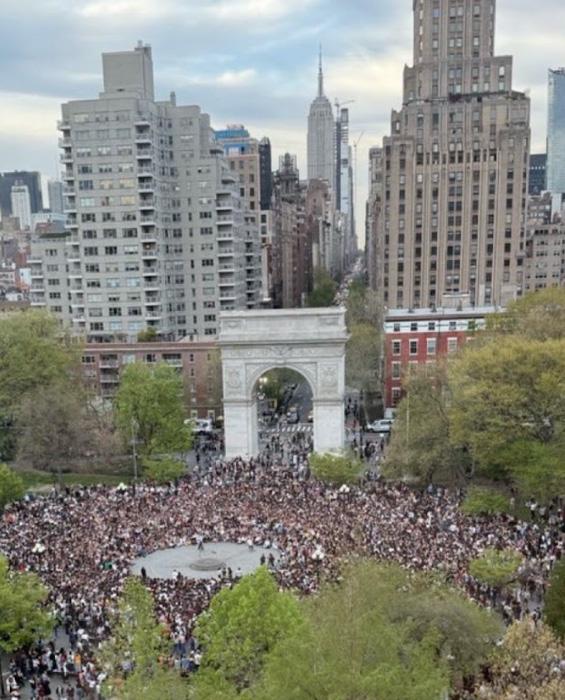
Astroturf alternative
41 Traditional Easter entree, for some
43 “Apollo 13” organization 44 Clever maneuver 49 Candy ___
50 Second-person pronoun
52 Small, medium and ___
53 ___ and dined
54 River named for an Indian tribe
55 Multiple-choice answer
56 Yellow fruit
57 Clothing
58 Big name in elevators
59 Sponge opening
60 Skin-cream element
61 Monocle, e.g.
65 Alpine river
66 Mudder’s morsel
ANSWERS TO PREVIOUS CROSSWORD: NOT FOR WHAT?
4/27/25, 01:35 hrs
4/27/25, 02:59 hrs
4/27/25, 20:05 hrs
4/29/25, 10:02 hrs
Alcohol Offenses: Possess Beer Under 21 Ryburn, Inactive
Alcohol Offenses: Possess Beer Under 21 Belk, Inactive
Larceny Offenses: Misdemeanor Larceny Belk, Inactive
Traffic Offenses: Revoked Driver’s License; No Insurance; Fictitious Registration Plate Grey Rd / Erwin Lodge, Cleared by Arrest
SGA summer storage signups are open. Any student can sign up for the service. Check your inbox for emails from the SGA.
The Committee met with Dr. Stacey Riemer to discuss strategies on schoolwide communication. Also discussed updating WildcatSync to make it more efficient and user-friendly. The Committee has also teamed up with the Honor Council to help with orientation and generate more awareness about the Code.
Construction has begun on the Chick-fil-A location, which is coming to campus in the fall of 2025. The Committee is continuing to discuss the café, which will be located on the top floor of the renovated library. The potstickers, which have been featured in the Davis Café, will be a permanent fixture.
The Honor Council is hosting the following events leading up to finals: (1) Ice Cream and Meet the Council at the Union Stadium Entrance: May 5, 3 p.m. - 5 p.m. (2) Tabling with the Mental Health Association at the Union Stadium Entrance: May 6, 11 a.m. - 12 p.m. (3) Study Hall with the Honor Council in the Library Fishbowl: May 7, 7 p.m. - 9 p.m.
The ATC has shared student organization budgets with club presidents for the upcoming academic year.
yowl.com/DJEarworm We lost the plot Issue
ROTC dethrones Nummit for title of least efficient group on campus.
Page Uniform Practice
Is this Frolics or reunion weekend? A list of every alumni I saw on campus this weekend.
Page Found a Job Yet?
April 30, 2025
Dozens watch in horror as KYLE gets torn to shreds after he jumps into crowd at Frolics.
Page Uncontrollable Davidson Students
Frolics: wrong kind of blackout.
Page First the BORG, Then The Lights DUFF Seniors confused by first Frolics, immediately return to throwing a frisbee.
Page Full Circle...Almost Like A Disc
pril 25, 2025 started as a normal Frolics Friday. The wind was calm and humid. Androgyny was clearing out the Acapalooza crowd. Commons workers kept hordes of drommons-goers at bay, all the while the stage was being set—a stage that would allow this little campus to become the site of one of the most disastrous government intelligence leaks in U.S. history.
This Yowl writer attended the concert hoping to hear Rock Lobster thinking The 502s were the B-52’s. ROTC reportedly had the same confusion, resulting in them sending in a Black Hawk to take down a bomber that was never there. Though “Love Shack” couldn’t be heard, The Yowl stayed to continue coverage and was pleasantly surprised. However, halfway through the KYLE performance, the earpiece that The Yowl editors use to workshop their headlines about the basketball team losing began to pick up a rogue signal. A man with a deep voice listed off words such as “Red River,” “Delta,” “Rico,” “Water,” “Borne,” “Binki” and “Commons.” The signal repeated several times, then suddenly stopped. The Yowl thought nothing of it until KYLE seemed to enter a trance, briefly walked off the stage and instigated a deadly coup against the Student Government Association president, implementing an authoritarian candidate that aligns with Central Intelligence Agency values. It was at this point that The Yowl grew suspicious of KYLE.
The Yowl contacted its Union Board plant to investigate in the green room. After the Union Board group picture was taken, a brief interview was conducted. “Keep being smart,” KYLE stated to the group. To the unsuspecting listener, this may sound like well wishes from a nervous celebrity put on the spot by an awkward college student, but to a keen journalist, such as those at The Yowl, this was clearly a threat and a warning not to dig deeper.
We called his bluff and repeated the aforementioned code
words in his ear during a hug. Suddenly, the same voice came over the earpiece and stated that Agent SuperDuper had been compromised. KYLE then began talking about how he needed to take his shirt off because it was sweaty, proceeded to run to a back room in the Alvarez College Union to forge government documents and, perhaps most suspiciously, barricaded himself in the E. H. Little Library (Libs), burning radical books and pamphlets that were marked as classified.
The Yowl left this interview discouraged and downtrodden with no hard evidence of a deeper conspiracy. The next day, The Yowl went to investigate Libs, when the power went off. The Yowl suspects this was an act by the government to contain an attempt to eliminate KYLE, who was still at large on Davidson’s campus and was reportedly cheating at the Patterson Court Council jousting event and stealing funds from the Activities Tax Council to purchase a getaway boat. How else could a power grid be out for that long? Duke Energy is a competent corporation with zero inefficiency problems and always puts the needs of its customers first. It has never once let us down or displayed any incompetence. They did not put copious amounts of coal ash in Lake Norman. [Editor’s Note: this writer is not being paid to promote this company and only makes this comment with love and affection in their heart for the beloved Duke Energy]. Sadly, The Yowl still could not locate KYLE for a follow-up to the prior interview. Sunday came and went with The Yowl turning up empty-handed after countless dead ends and mistaking hungover people in Wall for dead bodies that KYLE could have left in his wake.
Sometimes journalism is disappointing. The Yowl did their best to track down KYLE, but failed despite hearing distant gunshots and references to his movie “The After Party.” This writer was sunbathing on the Old Tennis Court Lawn when they witnessed military intervention as a Sikorsky UH-60 Black Hawk helicopter deployed and apprehended KYLE in the
The Yowl memes: Brought to you by someone who can only kind

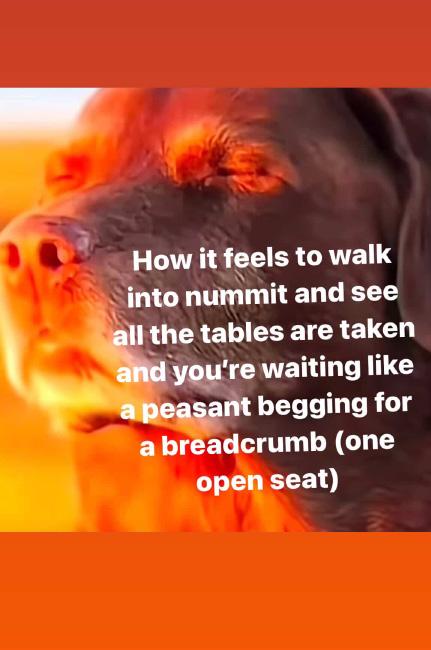
WRITERS
most secretive and secure place on campus: the Dana-Watson basement and tunnels. In what would be known as “Operation Playinwitme,” the military removed KYLE from campus, wiped all records of his Frolics performance and set charges to destroy Libs and all evidence therein. The government denies any part in Operation Playinwitme and fails to recognize the events of Frolics. The Yowl would like to state its commitment to truth in exposing conspiracies that attack the student body. We apologize that we could not learn more about KYLE and his life as a sleeper agent, but we look forward to future Union Board-sponsored sleeper agents and the opportunity to do our darn best journalism we can.
Here is a QR code to the interview:

Since JD Vance has clearly demonstrated his omnipotent power—strong enough to take down even the holiest religious leader, Pope Francis—it’s only fair that he start taking requests. If he can’t be a good vice president, he should at least be a good genie. Here’s a short list of things JD Vance should kill and/or break next:
• The couple that makes out in the middle of Commons
• Break: Some backs (for the sake of some people’s mental health)
• All the ants in Libs, so we can have a functioning library for, like, one more week
• Trump! For the plot. You know—besties to enemies
• The hearts of all evil exes and situationships still roaming this earth
• The Davidson power grid, so we can finally replace it and be free from eternal power outages
• The company that makes the godawful Commons tortellini
• The people who banned BORGs (or just slash their tires—it’s fine)
• The new mascot
• People with peanut allergies
People who leave their stuff behind to reserve a space for hours and don’t come back
• People who still can’t tell the difference between there, their and they’re Periods (6 feet tall, benches 350 pounds, by the way)*
*5’9” and can’t bench two 40 pound dumbbells
Here’s an even shorter list of things JD Vance should absolutely stay away from:
• Eiichiro Oda (I need to know what the One Piece is)
• George R.R. Martin
• Edwin
• Our favorite Union cashier
• The Davidson College Symphony Orchestra
• Good-looking, non-balding people—there’s a shortage!
Inflation rising at a drastic pace. Outstripping economist pace to understand it. The inflation now being called “sonic inflation” is projected to affect everyone—even college students. Google “sonic inflation” to learn how this affects you.
Note: The Yowl is a satirical supplement to The Davidsonian Hence, nothing in it should be taken as truth.